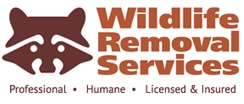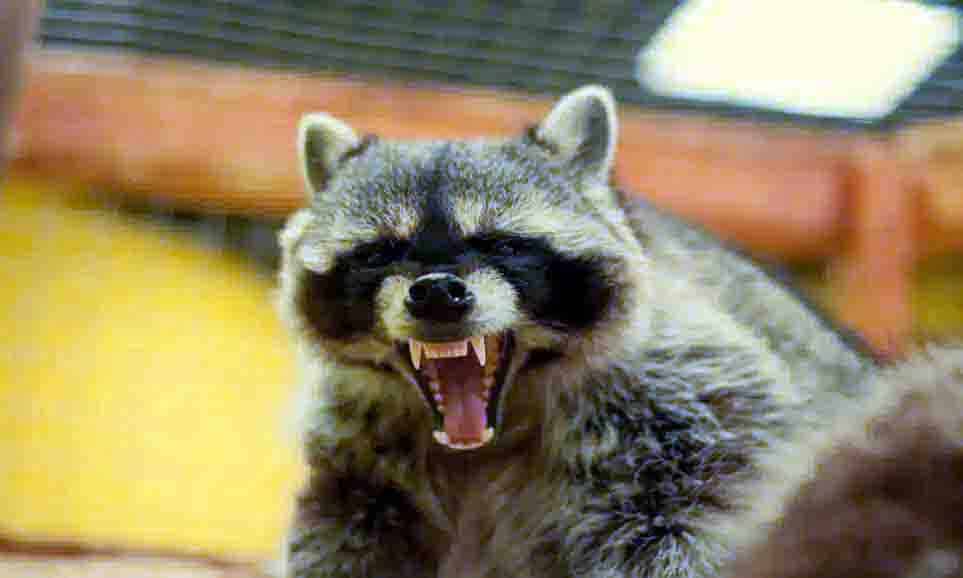The Distinguishing Factors Of Raccoon Poop
Many questions will be presented to me when I and out in the field, such as: could you please tell me what type of poop this is? How can I tell if the animal droppings in my attic are animal droppings? How will I know if it’s from a rat, squirrel, possum, or raccoon? Suppose you are trying to identify raccoon poop. In that case, there are specific defining characteristics that you will see depicted on this page.
So how big are the droppings of a raccoon? In most cases, if you have ever seen dog poop before, it’s about the same size; the primary difference is that you will often see seeds intermixed with the poop. You may also notice that portions of berries that they have consumed will also be in the poop. Therefore, when you think about the raccoon’s diet, which will consist of eating nuts, fruits, berries, and seeds, it will look this way. Raccoons are not picky when it comes to eating food, so you can see many different things inside of the poop. If you look at this picture closely, you will notice that it is very black in color.
When trying to figure out whether or not you are looking at raccoon poop, and if you have found this in your attic, you will want to consider the following factors: In general, dog poop and raccoon poop will be virtually equal in size; you are looking at something that will be up to an inch in diameter, and the size is often smaller or larger depending upon the age of the raccoon that is occupying your attic. In many cases, if a raccoon is in your attic, it is likely a pregnant female simply trying to find a place to have the babies. As mentioned earlier, if you can find berries in the poop, it’s likely raccoon poop. Another characteristic to look for is that it will be broken about halfway in the middle, and you can see this in the picture on the left. One of the best ways to distinguish will possum poop from raccoon poop is that an opossum often leaves one large continuous pile.
Raccoons Toilet is Called a Latrine
A latrine is a word used to describe certain areas where you will find raccoon urine and poop spread around in specific piles. Unlike many other animals, a raccoon will choose to only defecate in one particular area. In some ways, it’s similar to humans that are going to use the toilet. If you are dealing with squirrels, possums, or even rats, they will simply poop wherever they happen to be. They really don’t have a reason for choosing only one location. Therefore, raccoon latrines are sometimes referred to as trains because of how quickly they will pile up in your attic.
It really doesn’t matter what animal is defecating in your attic, as you will not want to touch any type of feces at all that you find. There will likely be professionals that can remove it for you. Suppose you want to do this yourself, without professional assistance from a control team specializing in wildlife. In that case, you should use a respirator when you are doing this because raccoon feces may contain insects and bacteria that could harm you or even lead to your demise. There are some health issues associated with raccoon poop, such as roundworm. If it is ingested, this can literally become fatal, and you will notice certain symptoms. If you ingest roundworm, it is likely through inhaling it, which is why wearing the respirator is highly recommended. Those that do not treat roundworm immediately will eventually die. In addition to this, various other types of bacteria can be detected in raccoon poop, such as hantavirus and histoplasmosis, both of which can cause respiratory issues that are quite severe.
Are You Smelling Raccoon Poop?
Some customers will often ask about the smell of raccoon poop. To be honest, it is terrible in regard to its odor. Raccoon feces is extremely strong and potent because of the ammonia smell, and when mixed with urine, it will smell like rotting feces. This is going to be a prime location for flies, larvae, and even various parasites to occupy, which will be in your attic if they are currently living in this region of your home. You need to be careful because inhaling or ingesting any of these diseases will be possible, especially roundworm, which is quite common. You may also detect eggs that will be in the feces, which are small enough to be inhaled. Some parasites can actually be detrimental to your central nervous system, leading to health issues such as dehydration and diarrhea. This is why hiring a professional to trap the raccoon and remove the feces is highly recommended. A professional company, such as Wildlife Removal Services of Florida, will always use respiratory equipment and hazmat suits and have fully trained technicians who can help you out. They will remove all of the raccoon urine and poop for you to ensure that your environment in the attic is completely clean and sanitized so that hazardous diseases cannot be accidentally inhaled. Once the raccoon poop is taken away by these professionals, you will want to make sure that the raccoon trapper can completely sanitize your attic and any other area where raccoon poop was found to ensure the safety of your family.
Raccoon Poop is Dangerous
Raccoon droppings can be found all over your property, including in your attic, swimming pool, lawn, home, and anywhere on your property. You will notice the smell; in most cases, raccoons are simply wild animals who prefer living outside. However, if you have a residential pool, they may defecate in the water, often in ponds, rivers, and lakes. When you detect raccoon poop in any location around your house and your attic, be sure to keep your animals and children away from it and make sure that your pets do not play with or eat this material. Suppose you have children or several pets. In that case, the bacteria and diseases can affect them adversely, so you need to keep them away. For the most part, any type of poop found in your attic is going to come from a raccoon; if you believe that raccoons infest your attic, you need to look at the images that we have presented on the left to confirm that this is the exact type of poop you are dealing with. It will allow you to be very definitive on what animal species have left their poop. There are definitive features to look for if you believe that a raccoon has left this in your attic, so be careful as you assess these images. In the images with raccoon feces, make sure that you are dealing with raccoons in your attic or perhaps those pooping on your lawn just to be safe.
Raccoon Removal and Exclusions
If any of what was described above can be related to your situation. Than the first and best choice is to contact a wildlife removal expert. Not all companies are made equal, so if you want quick same day service that you know will be done right. Than contact wildlife removal services of Florida. They have been servicing Palm Beach County for over 20 years and know how to get the job done. Raccoon removal, cleanup and exclusions. No matter what you need just call 561-212-9255.

